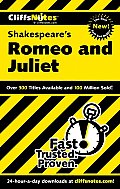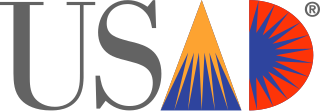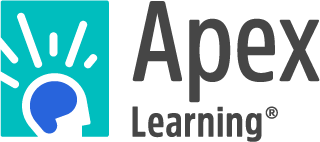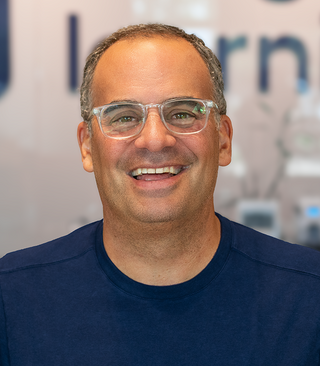In multiple countries' curriculum, social studies is the integrated study of multiple fields of humanities, the arts, and social sciences, including history, economics, geography and political science. The term was first coined by American educators around the turn of the twentieth century as a catch-all for these subjects, as well as others which did not fit into the helps the models of lower education in the United States, such as philosophy and psychology. One of the purposes of social studies, particularly at the level of higher education, is to integrate several disciplines, with their unique methodologies and special focuses of concentration, into a coherent field of subject areas that communicate with each other by sharing different academic "tools" and perspectives for deeper analysis of social problems and issues. Social studies aims to train students for informed, responsible participation in a diverse democratic society. The content of social studies provides the necessary background knowledge in order to develop values and reasoned opinions, and the objective of the field is civic competence. A related term is humanities, arts, and social sciences, abbreviated HASS.

CliffsNotes are a series of student study guides. The guides present and create literary and other works in pamphlet form or online. Detractors of the study guides claim they let students bypass reading the assigned literature. The company claims to promote the reading of the original work and does not view the study guides as a substitute for that reading.

The Academic Decathlon is an annual high school academic competition organized by the non-profit United States Academic Decathlon (USAD). The competition consists of seven objective multiple choice tests, two subjective performance events, and an essay. Academic Decathlon was created by Robert Peterson in 1968 for local schools in Orange County, California, and was expanded nationally in 1981 by Robert Peterson, William Patton, first President of the new USAD Board; and Phillip Bardos, Chairman of the new USAD Board. That year, 17 states and the District of Columbia participated, a number that has grown to include most of the United States and some international schools. In 2015 Academic Decathlon held its first ever International competition in Shanghai, China. Once known as United States Academic Decathlon, on March 1, 2013, it began operating as the Academic Decathlon.
Blended learning or hybrid learning, also known as technology-mediated instruction, web-enhanced instruction, or mixed-mode instruction, is an approach to education that combines online educational materials and opportunities for interaction online with physical place-based classroom methods.

The College Board is an American not-for-profit organization that was formed in December 1899 as the College Entrance Examination Board (CEEB) to expand access to higher education. While the College Board is not an association of colleges, it runs a membership association of institutions, including over 6,000 schools, colleges, universities, and other educational organizations.

Kaplan, Inc. is an international educational services company that provides education and training services to colleges, universities, businesses and individuals around the world. Founded in 1938 by Stanley Kaplan, the company offers a variety of test preparation, professional training, career development, language training, university and student support services. The company is headquartered in Fort Lauderdale, Florida, and is a wholly owned subsidiary of Graham Holdings Company.

Open educational resources (OER) are teaching, learning, and research materials intentionally created and licensed to be free for the end user to own, share, and in most cases, modify. The term "OER" describes publicly accessible materials and resources for any user to use, re-mix, improve, and redistribute under some licenses. These are designed to reduce accessibility barriers by implementing best practices in teaching and to be adapted for local unique contexts.

An online school teaches students entirely or primarily online or through the Internet. It has been defined as "education that uses one or more technologies to deliver instruction to students who are separated from the instructor and to support regular and substantive interaction between the students. Online education exists all around the world and is used for all levels of education. This type of learning enables the individuals to earn transferable credits, take recognized examinations, and advance to the next level of education over the Internet.
Educational technology is the combined use of computer hardware, software, and educational theory and practice to facilitate learning. When referred to with its abbreviation, "EdTech," it often refers to the industry of companies that create educational technology. In EdTech Inc.: Selling, Automating and Globalizing Higher Education in the Digital Age, Tanner Mirrlees and Shahid Alvi (2019) argue "EdTech is no exception to industry ownership and market rules" and "define the EdTech industries as all the privately owned companies currently involved in the financing, production and distribution of commercial hardware, software, cultural goods, services and platforms for the educational market with the goal of turning a profit. Many of these companies are US-based and rapidly expanding into educational markets across North America, and increasingly growing all over the world."

Apex Learning, Inc. is a privately held provider of digital curriculum. Headquartered in Seattle, Apex Learning is accredited by AdvancED.

Jonathan Grayer is the Chairman and CEO of Imagine Learning, a leading digital education technology company focused on developing digital curriculum and tools for pre-K–12 students. Grayer founded the company in January 2010 as a partnership with Kohlberg Kravis Roberts (KKR). In January 2018, the company announced a new strategic partnership with Silver Lake Partners. Grayer previously served as the Chairman and CEO of Kaplan, Inc., a global education company and test prep provider that has been owned by Graham Holdings Company since 1984. Grayer, named CEO in 1994, grew Kaplan's revenues from $80 million to $2.3 billion when he retired from the company in 2008.
Ellen Siminoff is an entrepreneur and investor. Frequently quoted in The New York Times as an Internet industry commentator, Siminoff was named one of Forbes magazine's Masters of Information in 2005.

Test preparation or exam preparation is an educational course, tutoring service, educational material, or a learning tool designed to increase students' performance on standardized tests. Examples of these tests include entrance examinations used for admissions to institutions of higher education, such as college, business school, law school, medical school, BMAT, UKCAT and GAMSAT and graduate school and qualifying examinations for admission to gifted education programs.
David E. Siminoff is a Silicon Valley investor and entrepreneur. With his wife, Ellen Siminoff, the couple have been angel investors/advisors for dozens of successful Silicon Valley start-ups, including StubHub, richrelevance, SlideShare, BlogHer and Crunchyroll.
iCivics, Inc. is a 501(c)(3) non-profit organization in the United States that provides educational online games and lesson plans to promote civics education and encourage students to become active citizens. iCivics was founded in 2009 by retired Supreme Court of the United States Justice Sandra Day O'Connor. iCivics's stated mission is to “ensure every student receives a high-quality civic education, and becomes engaged in – and beyond – the classroom.”
SparkNotes, originally part of a website called The Spark, is a company started by Harvard students Sam Yagan, Max Krohn, Chris Coyne, and Eli Bolotin in 1999 that originally provided study guides for literature, poetry, history, film, and philosophy. Later on, SparkNotes expanded to provide study guides for a number of other subjects, including biology, chemistry, economics, health, math, physics, and sociology. Until 2022, when SparkNotes Plus, a paid service, released, SparkNotes did not charge users to use any of its resources. SparkNotes receives revenue from advertisements.

Imagine Learning, formerly Twig Education, is a digital media company that offers educational content to schools via subscription websites.
Brightstorm is an online learning platform for teenagers. It features thousands of study videos as well as other study tools and resources such as Math Genie and College Counseling. Study videos cover math courses ranging from pre-algebra to calculus as well as English, science, and test prep for SAT, ACT, and Advanced Placement tests. The website is subscription-based and allows users to watch study videos without third-party advertisements. It is reported that Brightstorm has delivered over 20 million lessons to more than 240,000 registered users from over 200 countries.

Edgenuity, formerly Education2020 (E2020), is a standard-based online learning resource for school districts produced by Imagine Learning, which teaches kindergarten through 12th grade in core, elective, credit recovery, technical, and career subjects, through both remedial and accelerated work. As of 2019, Edgenuity serves more than four million students in the United States. Edgenuity also runs popular learning curriculum Time4Learning.










